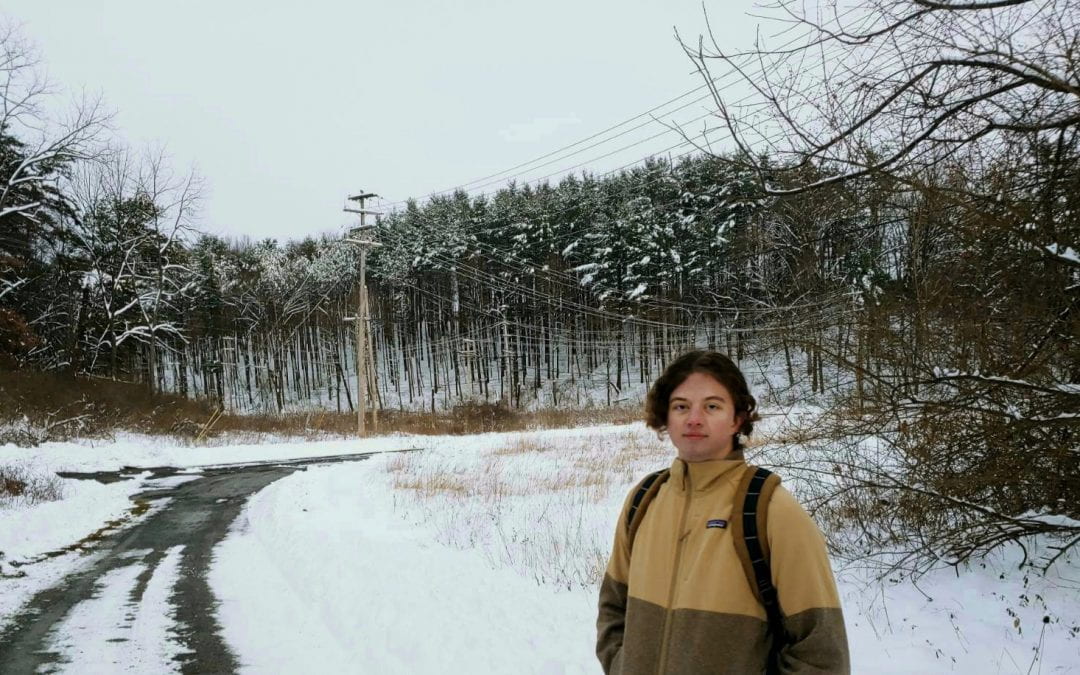Hi everyone! My name is Bram Woolley, and I’m one of the Student Farm’s new 2021 interns. Finishing my junior year in the Schreyer Honors College, I’m double majoring in Geography and International Politics with minors in Arabic and GIS.
I’m the oldest of nine children, and my family’s deep passion for food systems and homesteading was always a strong influence. Cultivating our backyard urban garden, participating in a community garden plot, and supporting local farms, CSAs, and sustainable meat shares were all regular parts of my childhood. From my parents, I’ve learned to produce soap, yogurt, kombucha, beer, bread, and more. I’ve even learned how to slaughter chickens!
Through these early experiences and my family’s involvement with the Weston A Price Foundation, I developed a strong interest in social ecology, traditional agriculture practices, and Indigenous lifeways. Currently, I’m hoping to pursue an academic career in either geography or anthropology. My research interests include geopolitics, religion, ethnobotany, and critical agrarian studies. Beginning my Schreyer honors thesis this semester, I’m exploring the social dynamics and political economy of agrarian cooperatives in Rojava (the Autonomous Region of North and East Syria).


Society is not separate from the ecological and biological systems which we inhabit. Similarly, agriculture and food systems are not separate from our daily lives, nor merely “rural issues”. They are crucial to how we as humans have survived, adapted, and structured our surroundings. Examining how we source our food, cultivate resources, and treat our neighboring species is key – not only to the survival of Earth’s biodiversity, but also to solving the sociopolitical challenges of our time. The problems faced by the agriculture sector are almost always wider issues faced by other types of labor. By building more sustainable and just agricultural practices (locally, regionally, and globally), we can be part of the movement to solve today’s seemingly insurmountable social and ecological struggles. While this involves creativity and forward thinking, it is also critical to study the ways in which other societies and our forbears approached these issues. In many cases, “reinventing the wheel” is less helpful than investigating why our “wheel” has stopped working to begin with.
The Student Farm at Penn State is a valuable part of this process. The farm serves as an example to the campus community and wider world of how sustainable food systems can be interwoven into the social fabric of a major research university and thriving municipality. Combining both innovation and time-tested ecological principles, the Student Farm has endured and grown over the past five years.

Through serving the Student Farm as an agroecology intern, I hope to develop the practical skills and broader knowhow which will aid me in studying agriculture and social ecology in the future. Additionally, I hope my time at the farm will allow me to introduce others to the simple joys of outdoor work, and will give me the confidence to pursue personal farming projects after graduation. With interests in personal homesteading and international agricultural service, the Student Farm will introduce me to the tools and techniques necessary to prosper in both pursuits.
I’m excited for what the next year will bring, and I hope you are too. If you’re ever in the State College area, don’t hesitate to schedule a tour or to volunteer – we’d love to have you join us!

